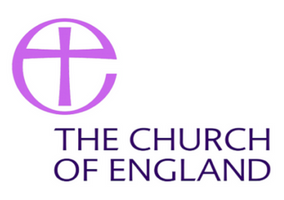Civil society organisations have responded to a review into how the government engages with faith.
The Bloom review, published last week, said that the Charity Commission may need more funding to properly investigate faith-based organisations.
Several organisations responded to the review, and consultation with the Commission noted the many examples of faith-based charities providing supplementary school activities, “with the vast majority providing a valuable service to local communities”.
It also highlighted some investigations by the regulator into faith-based charities, as well as extremism taking place at some charities.
“Selflessness and charity are often praised as virtues in society by people of all faiths, beliefs and none. There is a clear difference between legitimate and voluntary raising of funds, and when deception, coercion or exploitation of trust are used to extract money from people,” the review said.
Commission’s investigations team appears ‘overstretched’
The Bloom review states the Commission needs a “sufficient level of faith literacy, including intrafaith issues, to spot the signs of wrong-doing and handle these difficult situations sensitively”.
“This reviewer is not calling for the Charity Commission to be more suspicious of faith-based charities. But the fact that exploitation still occurs and that some individuals and organisations are still acting with impunity suggests that more could be done to increase faith literacy among Charity Commission,” it said.
It said that government should also consider increasing resource allocations to the Commission’s investigations team, “so they are better able to pursue cases of financial exploitation”.
The review found that a number of police and Charity Commission investigations into faith based exploitation are underway.
“This is very welcome, although it is clear that neither the police nor the Charity Commission always have the capacity or intelligence networks to tackle these issues,” the review said.
“The Charity Commission’s investigations team appears particularly overstretched when faced with the scale of this issue.”
A Charity Commission spokesperson said: “We welcome the publication of the Bloom review and are considering its findings.
“We allocate our resources based on our risk and regulatory framework. Any risks identified in the review will be considered alongside other risks within the sector.”
CAFOD: ‘Faith leaders should be unafraid speak out’
Christine Allen, director of CAFOD, said: “Times are tough at the moment, yet faith communities in the UK continue to rise to the challenge with incredible generosity.
“Parishes across the country are actively supporting those in need, from local food banks to aid for those affected by the climate crisis.
“But alongside putting our faith into action, faith communities have a duty to make our voices on the issues that matter.
“Faith leaders should be unafraid speak out and push for a truly fair and equal society. Yet, too often we are dismissed and told to ‘stick to our knitting’. This attitude undermines the pursuit for equality and justice.
“I hope this review will lead to more meaningful engagement and dialogue with faith leaders and a greater respect for their vital role in addressing the challenges faced by our communities at home and abroad.”
Faith charities ‘continue to face lack of recognition’
Fadi Itani, chief executive of the Muslim Charities Forum, told Civil Society the faith charity sector provides essential support to those in society who have been the hardest hit over the last few years.
He said before the Covid-19 pandemic and the cost-of-living crisis, faith-led charities have been “embedded with grassroots communities and have a rich history in supporting people in need and making impact to improve and even save lives”.
Itani added: “The Bloom review outlines that the present-day UK government needs to do more to recognise the importance of faith communities in providing vital support where other services are lacking and in being able to engage some of the most marginalised groups in our society.
“These charities continue to face lack of recognition, misunderstanding, systemic discrimination and other significant barriers that mean they are unable to access equal levels of financial support and funding to support their charitable services.
“In order to do this, selective engagement must stop and genuine dialogue and engagement with faith leaders and charities needs to take place, to remove the significant barriers that faith-led charities still face and ensure that their value is truly appreciated and supported."
National Secular Society: Bloom review ‘fundamentally flawed’
Megan Manson, head of campaigns at the National Secular Society said that the review was “fundamentally flawed and threatens to further erode separation of religion and state”.
She said: “While we welcome the recommendations to crack down on harms caused by religious fundamentalism, the report's clear pro-faith bias distorts its conclusions.
“If implemented, several of the recommendations would lead to more division and more imposition of religion on the public, supported by public money.”
Manson said: “If the government wants a more objective and accurate picture of religion in UK society, it needs to commission a review that isn't designed from the outset to pander to religious interests.”
Related Articles












